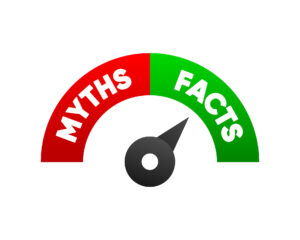In the realm of labor rights and workplace safety, workers’ compensation emerges as a significant yet often misunderstood topic. While it primarily serves to provide relief and support to injured workers, several misconceptions surround its application and benefits. The implications of these myths can prevent workers from accessing the compensation they rightfully deserve or lead to unwarranted expectations. Let’s dive deep into these misconceptions and reveal the truth behind them.
Myth #1: Claims are Only Valid if the Injury Was Due to Employer Negligence
A particularly persistent myth suggests that a worker can only file for compensation if their injury was directly caused by the employer’s negligence. This belief is not only misleading but can also deter workers from pursuing their legitimate rights.
The crux of workers’ compensation is to support workers injured during the course of their employment, irrespective of the culpability of their employers. The premise of this system is distinct from that of personal injury lawsuits. In the latter, negligence plays a pivotal role in determining liability, but workers’ compensation operates independently of fault considerations.
Therefore, even if a workplace observes impeccable safety standards and the employee exercises utmost caution, unforeseen accidents might still transpire. In such scenarios, the employer is obliged to compensate the injured worker.
Myth #2: All Injuries, Regardless of Context, Qualify for Compensation
On the opposite end of the spectrum, there’s a belief that workers’ compensation universally covers any injury sustained by an employee. This broad-brush approach disregards the nuanced criteria underpinning the system.
While it’s true that employer negligence isn’t a determining factor, the circumstances surrounding the injury bear significance. For instance, if a worker engages in reckless behavior, such as consuming alcohol while on duty, and sustains an injury as a result, workers’ compensation might not be applicable. The fundamental principle is that the injury should be directly connected to the job. Injuries arising from situations unrelated to the job might not be eligible for compensation.
Myth #3: Workers’ Compensation Offers Comprehensive Coverage for All Injury-Related Expenses
Another common misconception is the belief that workers’ compensation envelopes every conceivable expense related to the injury. However, the scope of workers’ compensation is more circumscribed than many assume.
While workers’ compensation does cater to crucial areas like medical treatments and lost wages during the recuperation phase, it doesn’t extend to all potential repercussions of the injury. For instance, workers’ compensation doesn’t cover claims for pain and suffering. Such claims are typically associated with personal injury lawsuits predicated on negligence. On the other hand, workers’ compensation might address other considerations such as short-term or long-term disability, depending on the severity and implications of the injury.
Call Today for a Legal Consultation with a Workers’ Compensation Attorney
Workers’ compensation, as a safeguard for employees, is a cornerstone of modern labor laws. However, understanding its nuances and dispelling myths is imperative for both employers and employees. To navigate these complexities, seeking guidance from professionals like PLBH can be invaluable. Feel free to reach out to us at (800) 435-7542 for a legal consultation.

